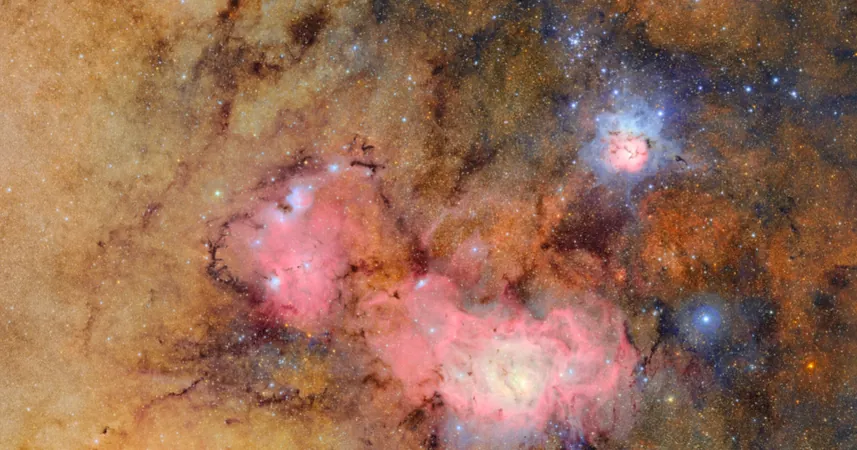
World’s Largest Camera Sees into the Cosmos: First Images Unveiled!
2025-08-02
Author: Wei
In a groundbreaking achievement for space exploration, the world's largest digital camera has officially captured its first stunning images of the cosmos! Set atop the majestic Cerro Pachón in Chile, this phenomenal piece of technology has taken two decades of innovation and collaboration to reach this pivotal moment.
With 201 cutting-edge imaging sensors and each pixel measuring just 10 microns, the camera boasts unparalleled clarity. It features three specialized focal planes meticulously sealed within a vacuum chamber, enhanced by gigantic three-foot-wide lenses. This extraordinary instrument, part of the Legacy Survey of Space and Time (LSST), is nearly the size of a small car and ready to revolutionize our view of the universe.
Every 20 seconds, this magnificent camera takes 15-second exposures, allowing for detailed examination of wavelengths ranging from ultraviolet to nearly infrared. According to project director Aaron Roodman, the camera's setup marks a critical milestone for the international teams involved, promising unprecedented clarity and detail of the southern hemisphere sky.
Recently, 678 breathtaking captures were released from a session lasting over seven hours. These first images reveal mesmerizing and elusive patterns in the Trifid Nebula and the Lagoon Nebula—details previously unseen by the naked eye. Accompanying the images are captivating 'first look' videos that offer a taste of what’s to come.
Dr. Željko Ivezic, director of the Rubin Observatory Construction, expressed enthusiasm about sharing this monumental achievement with the world. 'This is not just about images; it's the dawn of a new era of astronomical discovery,' he stated. After two decades of dedication, creativity, and teamwork, the construction is complete, and now, all eyes are on the sky.
These mesmerizing images promise to unlock more secrets of the universe, offering civilians a rare opportunity to glimpse the awe-inspiring wonders of space and our cosmic origins. Get ready to look up and explore!

 Brasil (PT)
Brasil (PT)
 Canada (EN)
Canada (EN)
 Chile (ES)
Chile (ES)
 Česko (CS)
Česko (CS)
 대한민국 (KO)
대한민국 (KO)
 España (ES)
España (ES)
 France (FR)
France (FR)
 Hong Kong (EN)
Hong Kong (EN)
 Italia (IT)
Italia (IT)
 日本 (JA)
日本 (JA)
 Magyarország (HU)
Magyarország (HU)
 Norge (NO)
Norge (NO)
 Polska (PL)
Polska (PL)
 Schweiz (DE)
Schweiz (DE)
 Singapore (EN)
Singapore (EN)
 Sverige (SV)
Sverige (SV)
 Suomi (FI)
Suomi (FI)
 Türkiye (TR)
Türkiye (TR)
 الإمارات العربية المتحدة (AR)
الإمارات العربية المتحدة (AR)